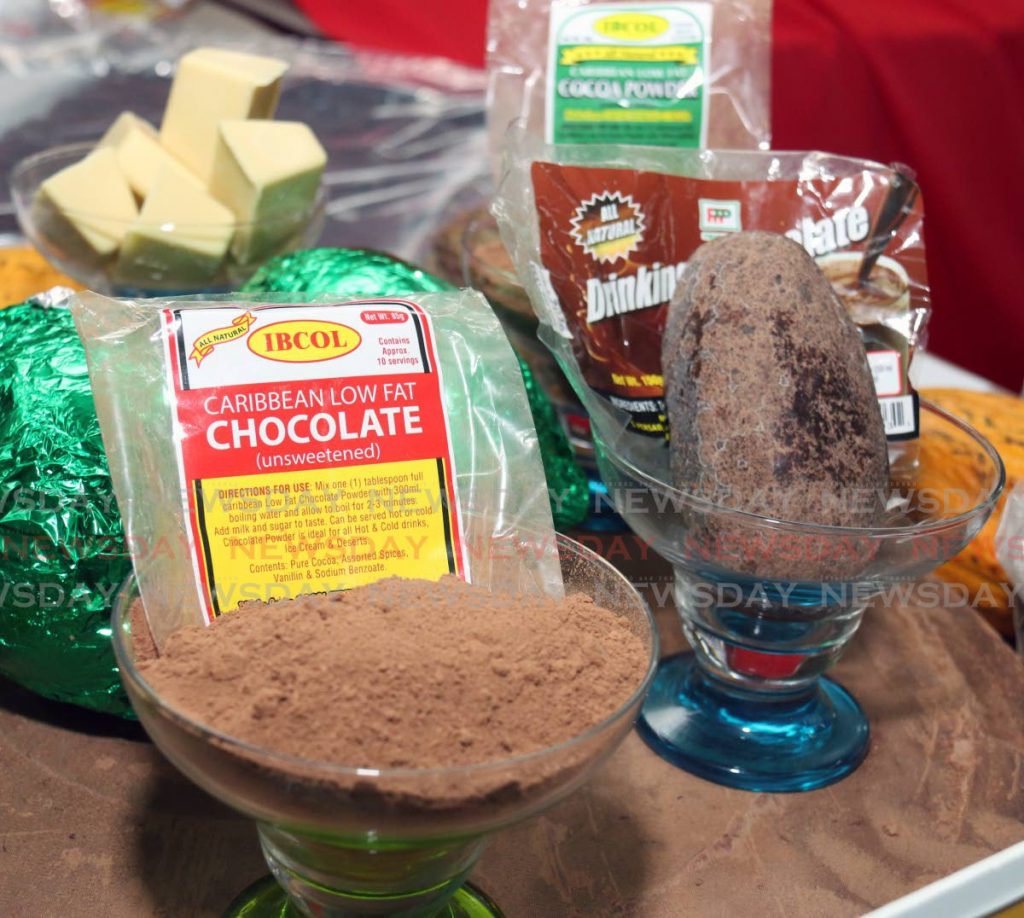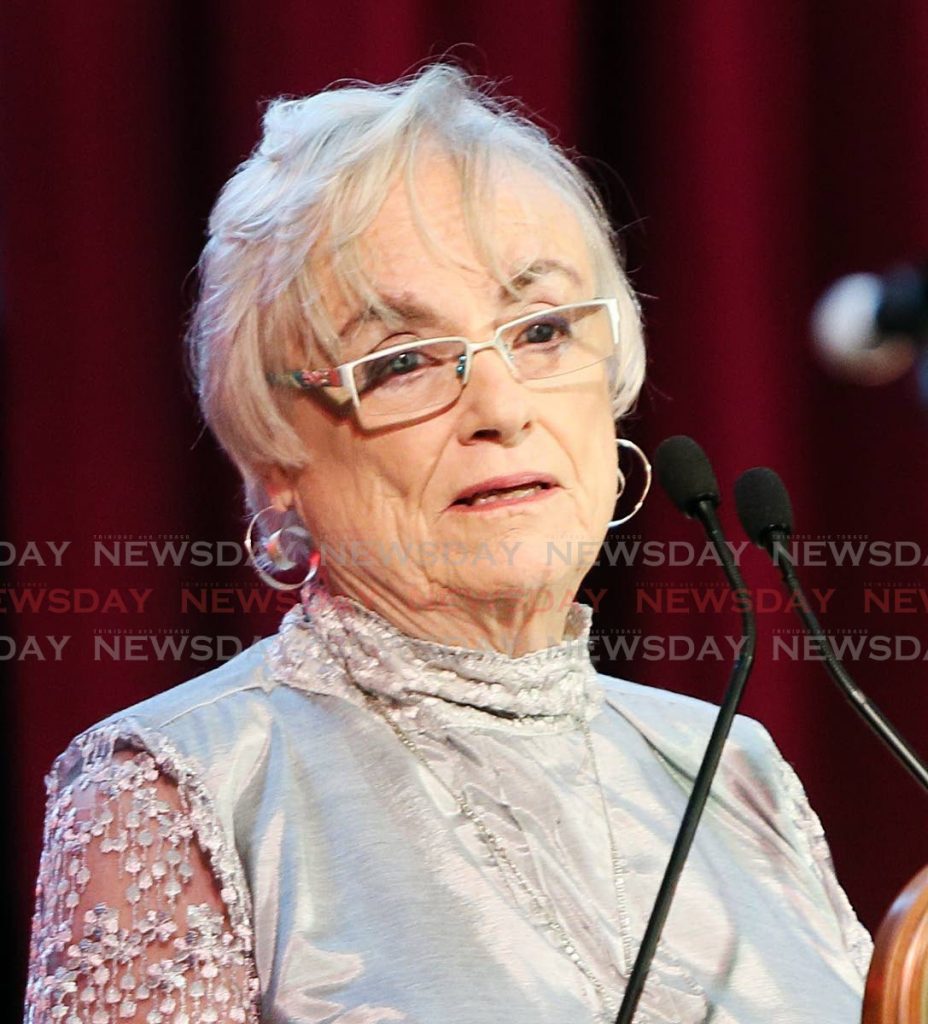How our health workers, and vitamins, help my covid19 recovery

Diana Mahabir-Wyatt
I have tested positive for covid19, joining a small minority of citizens who have contracted the illness.
How did I get it? Who knows? Could be the man standing uncomfortably close behind me in the supermarket coughing. Could be the colleague I had coffee with across a table who didn’t cough but did breathe, or, as I suspect, it could be from the handle of the gas station pump when I filled up my tank last week.
The point is, I tested positive when I was asked to go for a test.
There are only 7,000 of us as of my writing, or, if my mathematics are correct, .005 per cent or one 200th of the population.
This means that we are the pioneers that will eventually provide what the WHO called “herd immunity.” Are they still calling it that? The theory is that when at least 70 per cent of people in a country have had the virus, it will cease to affect the world any more than a common cold will.
"Herd immunity (also called community immunity) is a form of indirect protection from infectious diseases that occurs when a sufficient percentage of a population has become immune to an infection over a given time to achieve the goal of collective immunity, whether through vaccination or previous infections, reducing the likelihood of infection for individuals who lack immunity, disrupting chains of infection, which stops or slows the spread of disease. The greater the proportion of immune individuals in a community during a certain time, the smaller the probability that non-immune individuals will come into contact with an infectious individual.” That is a quotation from Wikipedia.
I suppose that there is some small comfort in that for those of us who have had to stay in quarantine until January to begin with, cancelling whatever Christmas festivities we had hoped to be part of.
What it has done, however, is to give me a totally new appreciation of our public medical system.
As required, having got the results, I did report to the county medical office. Within hours I had a call from a very professional nurse, Melissa Benjamin, who took details, reassured me, and passed me on to a doctor when I asked questions about something in the test result sheet that I did not understand.
That day I was called four times by either a doctor or a nurse, each one courteous and professional, to check if I had any symptoms and if they were increasing. Part of this was because I am in a high-risk group, but mainly it was sheer professionalism.
The following day I was checked on twice again.
I am fortunate in that my symptoms are mild and that is because of the preventative measures I took. Apparently some people didn’t even know that there are preventative measures.
A close friend in London called Monday to ask how I was feeling. Although his daughter is a doctor, he didn’t know that there were mild cases. He just thought once you had covid19 it was a path to the intensive care unit, depending on your age and state of your immune system.
We all have immune systems which are brilliant shields against disease from the vast majority of the thousands of viruses we are exposed to on a daily basis, just from living with other people, plants, insects and animals in our daily lives. If this were not so, humanity would not have survived over thousands of years.

Because I am in the high-risk age group, I have for months been taking vitamin D3, which is a shield against covid19, as well as vitamin C with zinc. Along with my addiction to chocolate, this is what has worked for me.
Don’t believe me? Look it up. Google it, or ask someone to do the research for you. Building up a strong immune system simply makes sense.
Medical journals, WHO and media concentrate on personal protection, which is good, of course. The world all waits for vaccines which will magically protect us from at least this last virus, but no guarantee against the new one now shutting down Europe, so one can understand why the rush is on,
But why not guard against the whole thing? Vitamin D3 will not stop you from getting the virus, but if you do get it, like me you will probably get a very mild case.
Local cocoa tea is an almost miracle defence against virus infections. And if you do get one and feel flu-ish, drinking a brew of local fever grass, which our grandparents used (and which works as well for us as it did for them) can help to alleviate the symptoms.
Most modern drugs produced by what is known as "Big Pharma" are derived from local plants. When I was in my teens locally grown marijuana or ganja was what was used by respectable people in the “at-risk” category for macular degeneration, arthritic and rheumatic pains and, I suspect depression. The British Colonial Office had that stuff banned for economic reasons, not medical ones. Now medical usage of marijuana based remedies is being “discovered.” Countries in our climate zone are making millions out of it.
But just as we refused to benefit from solar energy, (which, incidentally is also a good source of vitamin D3 if you let sun touch your skin) we let others exploit our natural resources, and instead of using the natural cures our grandparents used, we are seduced by marketing paid for by drug companies and spend money unnecessarily on the drugs they manufacture from our plants.
Prevention is always better than cure, as your grandmother used to say.
Grandmothers should be listened to.


Comments
"How our health workers, and vitamins, help my covid19 recovery"